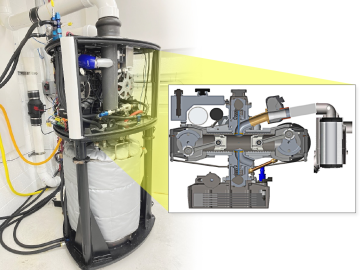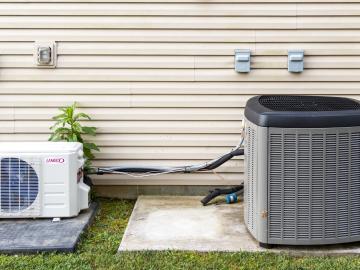Filter News
Area of Research
News Type
News Topics
- (-) Bioenergy (1)
- (-) Sustainable Energy (2)
- 3-D Printing/Advanced Manufacturing (1)
- Artificial Intelligence (1)
- Biomedical (2)
- Buildings (3)
- Chemical Sciences (1)
- Computer Science (1)
- Energy Storage (2)
- Environment (1)
- Materials (3)
- Materials Science (3)
- Microscopy (1)
- Nanotechnology (1)
- Neutron Science (23)
- Nuclear Energy (1)
- Physics (1)
- Quantum Science (1)
- Space Exploration (1)
- Transportation (1)
Media Contacts

ORNL researchers, in collaboration with Enginuity Power Systems, demonstrated that a micro combined heat and power prototype, or mCHP, with a piston engine can achieve an overall energy efficiency greater than 93%.

Nonfood, plant-based biofuels have potential as a green alternative to fossil fuels, but the enzymes required for production are too inefficient and costly to produce. However, new research is shining a light on enzymes from fungi that could make biofuels economically viable.

Oak Ridge National Laboratory researchers designed and field-tested an algorithm that could help homeowners maintain comfortable temperatures year-round while minimizing utility costs.




